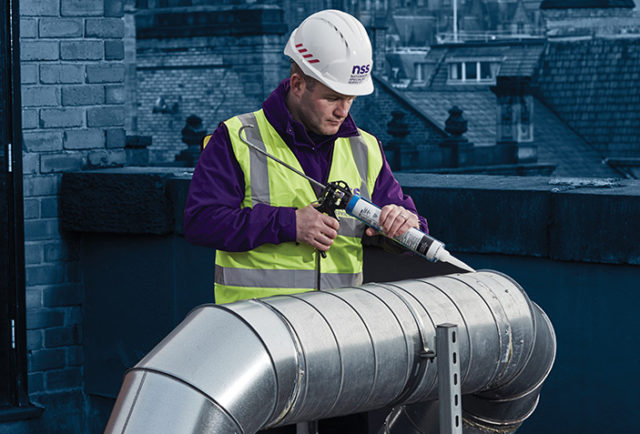We’re famous for our fourth emergency service which has even seen us beat the police to a call out. Should the worst happen, we’re on hand 24/7/365 to help. And while some emergencies are unavoidable – and in some cases classed as an ‘act of God’ – others can be prevented.
Here’s our top five tips outlining steps you can take to protect your building:
Inspect and frequently clear gutter systems
Leaf fall and debris like twigs and old bird nests can cause drain and gutter blockages. If any of these obstruct the flow of water away from a building, damp and other serious problems can follow. A regular annual clean of all the gutters prevents leaks and damp patches developing.
When it does rain, spend time checking that gutters are operating functionally, paying particular attention to joints and hoppers, while ensuring the drains are clear of debris.
Don’t forget the downpipes as well – regular painting of cast iron pipes is essential to prevent rust and will keep your property looking good.
The key is regular maintenance to avoid blockages, which run the risk of creating bigger problems such as leaks, pitting and corrosion. Our expert team can help clear blockages and repair any damage caused by water ingress.
Check electrics and lighting are secure and operating efficiently
An annual health check across the scope of the property can reduce the risk of accidents. Be sure to inspect your building’s back up power sources as part of this. Power-cuts are not uncommon in the UK and, when electrics do fail, it can mean disruption in the workplace and expensive emergency call-outs. Frequent checks will highlight any problems and provide opportunity to ensure your property is suitably prepared for such events.
Don’t forget about your car park lights too – especially if they’re in a remote area where lighting is required for safety reasons.
Prepare glazings for all seasons
Typically windows and window frames have a lifespan of 30-40 years; this can be significantly shortened if neglected, particularly if they’re subjected to extreme weather such as that seen in the UK in recent years.
What may appear to be insignificant damage can cause costly problems if not dealt with quickly and properly. Leaking window frames and cracks in glazings are quickly worsened by poor weather. Aside from the expense incurred in repairing any issues, the impact of their neglect can reverberate throughout the building.
Glazings are the first line of defence and damage can have a significant impact on energy conservation – not to mention internal damage should water ingress occur. We advise completing frequent window inspections to give you the chance to remedy any weak spots.
Check roofs for loose tiles
We all know that strong winds are often responsible for dislodging roof slates and tiles, which is not only hazardous, but often costly. Regular roof maintenance can prevent and protect against this.
Weak and vulnerable slates and tiles can be identified, repaired and replaced before damage occurs.
At NSS, we’re firm believers that prevention is the best cure and advise all our clients to take appropriate precautions.
Document a paper trail
Keep a consistent and complete record of any and all building maintenance, checks and inspections, setting reminders for when appointments are due. Keeping on top of all the moving parts can be challenging, but investing time in this is well worth the effort.
At NSS, we provide comprehensive reports after every job, outlining actions taken and any further recommendations. The reports are not only excellent tools to keep a record of all works, but also ensure no stone is left unturned when it comes to taking care of your property.

